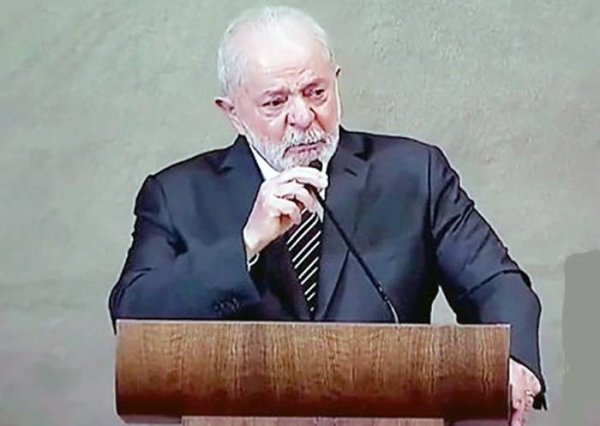
He was one of the key leaders of Nicaragua’s revolutionary Sandinista movement that drove the dictatorial Somoza clan from power.
But in the battle against coronavirus, Daniel Ortega has been invisible, sparking wild speculation over whether Nicaragua’s septuagenarian leader is self-isolating, bed-bound in hospital – or might even have died.
It has been almost a month since the 74-year-old leftist was last seen in public – and with the political rumour-mill in overdrive one prominent opponent this week gave him a deadline of 9.30am on Thursday to show his face.
“Nicaraguans must know the truth about the reasons for his absence,” tweeted Álvaro Leiva Sánchez, a human rights activist forced into exile by the brutal political crackdown that followed the failed 2018 uprising against Ortega and left more than 300 dead.
Nicaragua’s president was last seen on 12 March when he dialled into a conference call to discuss coronavirus with fellow Central American leaders, although Leiva claimed he had not been seen out and about since 21 February.
The former rebel’s retreat has caused anger and confusion at a time when Central America’s largest country is facing a pandemic that has claimed more than 80,000 lives worldwide.
“Analysts fear that behind his prolonged disappearance lies a macabre plan,” a conspiratorial article in the opposition newspaper La Prensa declared this week.
Félix Maradiaga, a prominent opposition activist, said it was possible Ortega – who has ruled Nicaragua since 2007 – was suffering a genuine health problem.
But Maradiaga said Ortega had pulled vanishing acts before as part of a “media strategy” designed “to strengthen the cult of personality around him”.
Ortega’s tendency to slip off the map has fuelled longstanding rumours over the state of his health and earned him the nickname “el gobernante ausente” (the absent ruler) in the Nicaraguan press.
In Ortega’s absence Nicaragua’s coronavirus response has been publicly steered by his vice-president and wife, Rosario Murillo, an eccentric and widely reviled poet who many see as the country’s real ruler.
That response has been deeply controversial: Nicaragua’s government has declined to close the country’s schools, shops or borders and even sponsored large-scale political rallies including a recent march through Managua called “Love in a Time of Covid-19”.
While much of Latin America is in a state or partial or total shutdown, Nicaraguan government propaganda websites continue to promote food festivals, beauty pageants and even the use of outdoor paddling pools.
The health ministry insists there has been no community transmission and has recorded only a handful cases of infection and one death – although many doubt those claims.
But on Tuesday the Pan American Health Organization publicly questioned Nicaragua’s response. “We have concerns for the lack of social distancing, the convening of mass gatherings. We have concerns about the testing, contact tracing, the reporting of cases. We also have concerns about what we see as inadequate infection prevention and control,” said Carissa Etienne, its Dominican director.
Nicaragua’s posture has drawn unflattering comparisons to Brazil’s far-right president, Jair Bolsonaro, who has faced global condemnation for dismissing coronavirus as a media “trick” – even though it has already killed 667 Brazilians.
“Bolsonaro is putting the health of Brazil’s people at risk,” the Brazilian correspondent Sylvia Colombo wrote this week in an article comparing the Brazilian and Nicaraguan responses.
“But in other parts of the world mankind manages to be even worse … It’s as if [Nicaragua’s] regime actually wanted to rid itself of part of the population,” Colombo wrote.
Carlos Quant Durán, one of Nicaragua’s top specialists in infectious diseases, said Ortega’s government had failed to take proper containment measures before coronavirus entered the country and was now failing to stop its spread.
“The state is obliged to try and reduce the risk of contagion: to avoid holding mass events, to close places where lots of people gather, like schools and universities. But the government has failed to do this,” Quant Durán said.
The sociologist Elvira Cuadra branded Nicaragua’s strategy “irresponsible and criminal”.
Nicaragua’s government has made no official comment on Ortega’s whereabouts but in daily broadcasts Murillo has insisted he continues to lead the country and sends “affectionate hugs” to the Nicaraguan people.
Maradiaga claimed the former revolutionary hero had become so detached from the people he claimed to represent that, in some ways, his absence hardly mattered at all.
“He’s been in a state of permanent quarantine for years, showing interest in nothing but himself and those around him.”












